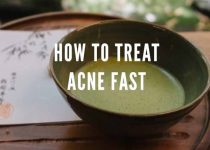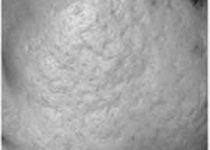Acne Treatments: An Extensive Guide
Acne is a common skin condition that affects people of all ages. It can range from mild to severe, and can cause a variety of symptoms, including pimples, blackheads, whiteheads, and cysts. While acne is not a life-threatening condition, it can be very frustrating and embarrassing. Fortunately, there are a number of effective treatments available for acne.
**What Causes Acne?**
Acne is caused by a combination of factors, including:
* **Excess oil production:** The sebaceous glands in your skin produce oil, which helps to keep your skin moist. However, too much oil can clog your pores and lead to acne.
* **Bacteria:** The bacteria Propionibacterium acnes (P. acnes) lives on your skin. When there is too much P. acnes, it can cause inflammation and acne.
* **Hormones:** Hormones can also play a role in acne. Androgens, which are hormones that are produced in both men and women, can stimulate the sebaceous glands to produce more oil.
* **Medications:** Some medications, such as steroids and birth control pills, can cause acne as a side effect.
* **Diet:** Some studies have shown that eating a diet high in refined carbohydrates and sugary foods can increase your risk of acne.
**How to Treat Acne**
There are a number of different treatments available for acne, depending on the severity of your condition. Some of the most common treatments include:
* **Over-the-counter (OTC) medications:** OTC acne medications are available in a variety of forms, including creams, gels, lotions, and pads. They typically contain ingredients such as benzoyl peroxide, salicylic acid, or retinoids.
* **Prescription medications:** Prescription acne medications are available in both oral and topical forms. They can be used to treat moderate to severe acne.
* **Light therapy:** Light therapy uses ultraviolet (UV) light to kill bacteria and reduce inflammation.
* **Chemical peels:** Chemical peels are used to remove the top layer of skin, which can help to unclog pores and reduce acne.
* **Extraction:** Extraction is a procedure in which a dermatologist uses a special tool to remove pimples and blackheads.
**How to Prevent Acne**
There are a number of things you can do to help prevent acne, including:
* **Wash your face twice a day with a gentle cleanser.** Avoid using harsh soaps or scrubs, as these can irritate your skin and make acne worse.
* **Use an oil-free moisturizer.** This will help to keep your skin hydrated without clogging your pores.
* **Avoid touching your face.** This can help to prevent bacteria from spreading to your skin.
* **Eat a healthy diet.** Eating a diet high in fruits, vegetables, and whole grains can help to reduce your risk of acne.
* **Get regular exercise.** Exercise can help to reduce stress, which can be a trigger for acne.
**When to See a Dermatologist**
If you have acne that is moderate to severe, or if it is not responding to OTC treatments, you should see a dermatologist. A dermatologist can help you to determine the cause of your acne and recommend the best treatment for you.


